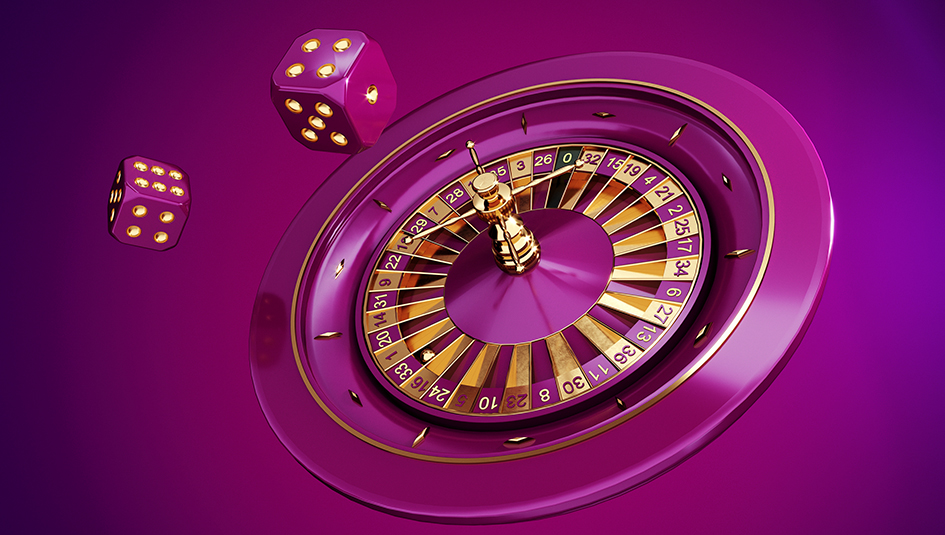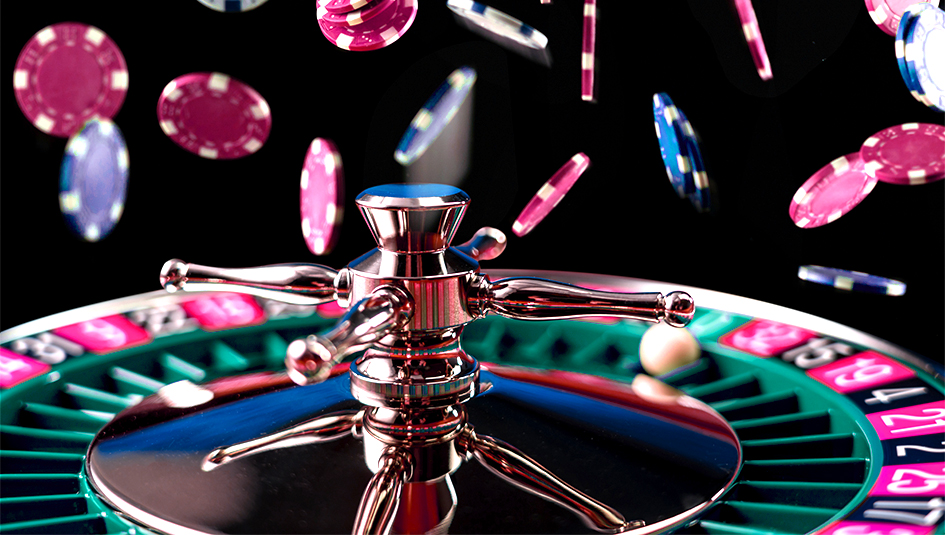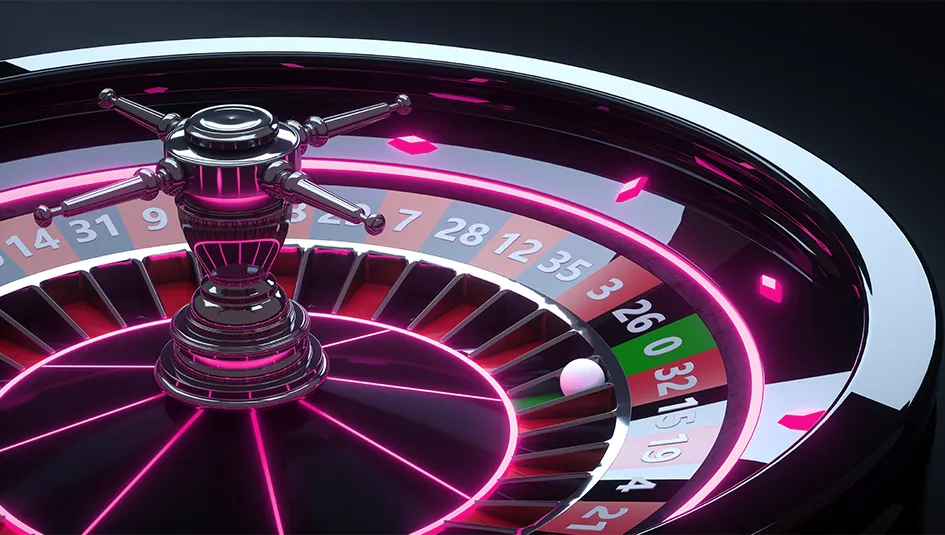Historical Background and Famous Roulette Stories
The enchanting spin of the roulette wheel first captivated the world in the late 18th century, with its origins steeped in the culture and charm of France. Its name, derived from the French term for "little wheel," hints at the game's humble beginnings. However, the world of roulette quickly grew to be anything but diminutive. A combination of chance and anticipation crafted an alluring mix that captured global attention, and it wasn't long before the game transcended French borders, establishing its presence in the elite gaming houses across Europe and, later, the New World.
Roulette's rich history is peppered with tales of extraordinary wins and losses. These legendary stories, many stretching the bounds of belief, add a unique layer of allure to the game's reputation. One such story revolves around Charles Wells, an infamous gambler who accomplished the unthinkable. In 1891, Wells took to the roulette tables in Monte Carlo with a pocket full of borrowed money. In an astonishing display of luck and endurance, he went on a winning streak so remarkable that it caused the casino to exhaust its cash reserves, an event termed "breaking the bank". His exploits, while tarnished by later revelations of fraud, remain one of the most talked-about events in roulette history.
Before reaching its current form, roulette went through several evolutionary stages. Initially, it was conceived as a blend of English wheel games, Italian board games, and a French game called 'Roulette.' Over time, as it spread across European countries, the game saw further tweaks and refinements. For instance, in 1842, Frenchmen Francois and Louis Blanc introduced the single-zero style roulette wheel, a variation that quickly gained popularity and later became the standard in European casinos. This transformation wasn't just physical; the rules and betting structures too adapted, leading to the sophisticated game we see today. By tracing these changes, one can appreciate how roulette was shaped by cultural influences and historical events.
Cheating in Roulette: A Risky Game
The allure of the spinning wheel and the potential for significant winnings have, over the years, led some individuals down a more dishonest path. Instances of cheating in roulette have been recorded, with perpetrators employing a diverse range of strategies to tilt the odds in their favor. While a few managed to escape the eagle-eyed scrutiny of casino security, many more found themselves facing the harsh consequences of their actions.
One of the most famous instances of successful cheating involves a group of ingenious roulette players from the 1970s. Known as the Eudaemons, this team of physics students employed science to predict the outcome of the roulette wheel. Using a concealed electronic device, the group applied principles of physics to forecast where the ball would land, thereby overcoming the uncertainty integral to the game. The Eudaemons' endeavor was a lucrative one, netting them a small fortune before they eventually disbanded.
However, the group's exploits are not just a tale of dishonesty and illicit gains. Their story underscores the remarkable lengths to which individuals will go to outsmart the system. The Eudaemons' ability to merge science and deceit presents a fascinating insight into the world of roulette, reminding us that the game has not only attracted fortune seekers but also those with a penchant for innovation and a disdain for rules.
In a noteworthy case of deception from the 1990s, a team of three gamblers found a way to 'read' the wheel at the Ritz Casino in London using laser scanners hidden inside a mobile phone. They reportedly won over £1 million before their suspiciously consistent winning streak alerted casino officials. In another case, a former casino dealer and his sister used a remote-controlled ball to cheat casinos in the early 2000s, netting hundreds of thousands of dollars. These incidents have led casinos to invest heavily in advanced surveillance and anti-cheating technologies. For instance, modern roulette tables come equipped with laser sensors for accurate measurement of the ball and wheel speed, as well as comprehensive CCTV coverage to closely monitor all activities. This ongoing battle against cheating further emphasizes the dynamic nature of the game.
Controversies: Biased Wheels and Dealer Signatures
The fundamental principle of roulette is randomness. Yet, some theories challenge this concept. One such idea revolves around biased wheels, which refers to wheels that could favor certain outcomes due to flaws or imperfections. A biased wheel could result from everyday wear and tear, or a manufacturing defect, leading to non-random results over time.
Though casinos maintain rigorous standards for their wheels to prevent this, tales of individuals who've exploited such biases to their advantage continue to circulate. Famous stories such as that of Joseph Jagger, who reportedly broke the bank at Monte Carlo by identifying a bias in a roulette wheel in the 19th century, adds fuel to this controversy.
Then, there's the notion of dealer signatures. This theory posits that croupiers, because of the repetitiveness of their task, might spin the ball in a consistent pattern that leads to a predictable set of outcomes. As attractive as it may seem, most experts dismiss this theory, arguing that the numerous variables at play, from wheel speed to ball weight, make it highly unlikely that a dealer could consistently influence the ball's landing spot.
While the dealer signature theory is often dismissed by the majority, it has found some advocates, primarily among seasoned players. They argue that, akin to a baseball pitcher who can consistently throw at a particular speed and direction due to muscle memory, a roulette dealer might also develop a consistent pattern. Even if this might introduce a certain degree of predictability, experts argue that exploiting such minute biases demands incredible precision and timing, making it practically implausible. However, the mere existence of this theory contributes to the allure of roulette, underscoring its complexity and the continuing quest to decode the game.
These ideas, while exciting, are generally considered outliers in the context of standard roulette play. Nonetheless, their existence underlines the fact that roulette, like any game, can be subject to scrutiny and attempts at strategizing, regardless of its inherent randomness.

Roulette and the Rise of Monte Carlo
The story of roulette is intertwined with that of Monte Carlo, a district of Monaco known for luxury and high-stakes gambling. In the mid-19th century, Monaco was facing financial problems. Prince Charles III decided to open a casino to provide a new source of income, and roulette quickly became one of the star attractions.
Monte Carlo was a convenient destination for gamblers from France, where gambling had been banned in 1837. Its close proximity to Italy, a country teeming with enthusiastic gamblers, also contributed to its quick success. The combination of the city's elegant atmosphere and the excitement of the roulette wheel attracted wealthy Europeans in droves.
Roulette's success in Monte Carlo helped the district prosper and solidified its reputation as a global gambling hub. It also had an impact on roulette itself. The single-zero style of roulette wheel, initially struggling to gain popularity in other regions, became widely accepted after its success in Monte Carlo. Even today, the roulette tables of Monte Carlo stand as a symbol of sophistication and high-stakes gambling.
Roulette: A World of Variations
Roulette's global popularity has led to the emergence of several regional variations, each with their unique set of rules and odds. These differences stem from regional cultural attitudes towards gambling and risk, creating a diversity that adds to the game's overall appeal.
The most common variations are European and American roulette. European roulette, also known as French roulette, features a wheel with a single zero. This format is considered the original form of the game. On the other hand, American roulette, which emerged as the game moved westward to the New World, introduced a double zero, increasing the house edge and creating a more high-risk environment.
Another less known but interesting variation is 'no-zero' roulette, a game that completely eliminates the zero pockets. This version significantly reduces the house edge, providing an entirely different gameplay experience. These various iterations of roulette underscore the game's adaptability, reflecting its ability to align with the distinct cultural preferences and risk tolerance of players across the world.
Roulette in Popular Culture
Roulette's charm and drama haven't escaped the realms of popular culture. The game has been featured prominently in numerous films, novels, and television shows, often depicted as a quintessential symbol of gambling. In Ian Fleming's 'Casino Royale,' James Bond's prowess at the roulette table is as significant as his skills as a secret agent. Similarly, in films like 'Run Lola Run' and 'Casablanca,' pivotal plot developments hinge on the spin of a roulette wheel.
The portrayal of roulette in popular culture often tends to romanticize the game, emphasizing incredible wins or tragic losses. Such depictions, while not always entirely accurate, play a crucial role in maintaining roulette's image as a game of elegance, risk, and chance, contributing to its worldwide appeal.
Myths and Superstitions: The Quirks of Roulette Players
Despite the inherent randomness of roulette, many players adopt a variety of personal superstitions and myths that guide their betting behavior. These range from the belief in lucky numbers to complex betting systems that players believe will increase their odds of winning.
Lucky numbers are a common superstition among roulette players. Some choose their numbers based on significant dates, such as birthdays or anniversaries, while others might select numbers that they feel have been coming up more frequently. There's no mathematical basis to these beliefs, but they add a personal element to the game that many players enjoy.
Certain betting systems also have their roots in superstition. Some players, for example, swear by the Martingale system, which involves doubling your bet after every loss in order to recover all losses with one win. Others may follow the Fibonacci system, a betting strategy based on the famous Fibonacci sequence.
These myths and superstitions highlight the human element of roulette. They underscore our tendency to search for patterns and predictability within the unpredictable, adding an extra layer of complexity and personal touch to the game.

The Psychology Behind Roulette
The role of psychology in roulette is as crucial as the spinning of the wheel itself. Despite being a game of chance, human cognition and mental biases heavily influence the decisions made by players at the roulette table.
A key concept here is the 'gambler's fallacy'. This is the belief that past events can influence future ones in a purely random process. For example, after a long streak of landing on red, players might assume that the ball is "due" to land on black. This, however, is a misconception, as each spin is an independent event and the outcome of one spin has no impact on the next.
There's also the 'illusion of control' where players believe their actions or choices can influence an outcome that is strictly defined by chance. This is commonly observed in how a player places bets or chooses numbers. For instance, manually placing a bet on a number may give a player the illusion of control, though the outcome is, in reality, entirely random.
'Loss aversion', another psychological concept, plays a role too. People tend to prefer avoiding losses over acquiring equivalent gains. This bias is often reflected in players' betting strategies, where the fear of losing can lead to conservative betting or prematurely leaving the table.
These psychological biases, often operating unconsciously, add a fascinating dimension to the game of roulette. They show that while the ball's landing spot may be dictated by chance, the bets placed by players are often guided by deep-seated cognitive biases.
From Psychology to Mathematics: The Science of Roulette
If the psychology of roulette is about human biases and decision-making, the mathematics of roulette is about odds, probabilities, and the cold, hard facts of a chance-based game. The roulette wheel, with each spin, becomes a practical application of statistical and probabilistic principles.
Every possible outcome in roulette, from the ball landing on a specific number to landing on a certain color, can be calculated using the laws of probability. For instance, in a European roulette wheel, the chance of the ball landing on any specific number is 1 in 37 (given there are 36 numbers and one zero), and the odds for even-money bets (red, black, odd, even, high, low) are just under 50% due to the presence of the zero.
These fundamental mathematical principles have given rise to numerous betting systems designed to beat the odds. For example, the Martingale system involves doubling bets after every loss, with the idea of recouping all losses with one win. The D'Alembert system, on the other hand, suggests raising or lowering your bet by one unit each time, based on whether you win or lose.
However, it's crucial to note that while these strategies are rooted in mathematical principles, none have proven to overcome the house edge in the long term. The outcomes in roulette are independent events, meaning past results have no bearing on future spins. Despite the allure of mathematical systems and strategies, the roulette wheel remains an emblem of randomness and unpredictability. The game continues to remind us that while we can calculate odds and probabilities, the final outcome is always subject to the whims of chance.
Quantum Physics: Roulette in a New Light
In an unexpected cross-disciplinary connection, roulette has found its way into quantum physics, one of the most advanced and puzzling areas of scientific study. The game, often seen merely as a symbol of chance and probability, becomes surprisingly relevant when we delve into the strange, counter-intuitive laws governing the quantum world.
The idea that the spin of the roulette wheel can be used to explain quantum principles arises from the concept of quantum superposition. This principle asserts that particles exist in multiple states simultaneously until measured or observed. In this state of superposition, particles hold an array of possibilities, much like a spinning roulette wheel holds the potential for any number to come up. It's not until the ball falls into a pocket (or a measurement is made in the quantum world) that one outcome is chosen.
In this metaphor, the roulette ball can be thought of as a quantum particle. While the wheel is spinning and the ball is in motion, the ball's final position is uncertain, effectively existing in all the slots simultaneously. It's only when the wheel stops spinning, and the ball finds a slot, that the multiple possibilities collapse into a single reality.
In fact, some quantum experiments, such as those dealing with entangled particles, have drawn upon statistical principles similar to those in roulette. Entanglement, a phenomenon where particles become interconnected and the state of one can instantly influence the state of the other, regardless of distance, bears a striking resemblance to the way outcomes are determined in a game of roulette.
However, while the principles of quantum physics allow for a multitude of potential outcomes in a state of superposition, the final outcome in roulette is determined by classical physics. The speed of the wheel, the initial velocity of the ball, friction, gravity, and the layout of the wheel all work together to determine where the ball will land. Nevertheless, the analogy between the quantum world and roulette offers an interesting perspective on the nature of reality and randomness.
The Future: Roulette and Artificial Intelligence
As we move further into the digital age, technology's impact on nearly every aspect of our lives continues to grow, and roulette is no exception. The integration of artificial intelligence (AI) into roulette represents the next frontier in the game's evolution, offering new methods of analysis, prediction, and personalization.
One key area where AI has been applied is in the analysis and prediction of roulette outcomes. AI systems, capable of learning and improving over time, can be trained to analyze past roulette outcomes and make predictions about future results. However, it's crucial to remember that roulette's outcomes are independent events, and despite an AI's ability to learn and adapt, it cannot predict future results with absolute certainty. But the insights offered by AI can add an additional layer of strategy to the game, making it even more engaging for players.
AI has also found a place in the world of online roulette. Casinos are using AI to create more personalized gaming experiences for players. For instance, AI can learn a player's favorite bets, analyze their playing habits, and offer personalized game recommendations. This level of personalization can make online roulette even more enjoyable, drawing in a broader range of players.
Moreover, the combination of AI and virtual reality technology has the potential to create immersive, realistic online roulette experiences that rival the thrill of playing in a physical casino. Players can interact with a virtual roulette table in real-time, place bets using gestures, and even experience the suspense of watching the wheel spin as if they were standing right next to it.
Looking ahead, as AI technology continues to advance, its role in roulette is likely to grow. As the game of roulette continues to evolve, one thing remains certain: whether it's the excitement of the spinning wheel, the allure of beating the odds, or the thrill of the unexpected, roulette will continue to captivate players for generations to come.

Place Your Roulette Bets at Queenplay Today
Here at Queenplay, you will find several versions of roulette to enjoy, both RNG and live dealer. If you’ve found this article interesting, then we are sure that you will be captivated by the game and the hours of excitement it can provide. Visit our casino today to start taking advantage of all the different roulette games and find the perfect one for your enjoyment.

 Top Roulette Strategies for Every Style of Play
Top Roulette Strategies for Every Style of Play The Evolution and Future of Online Slots
The Evolution and Future of Online Slots